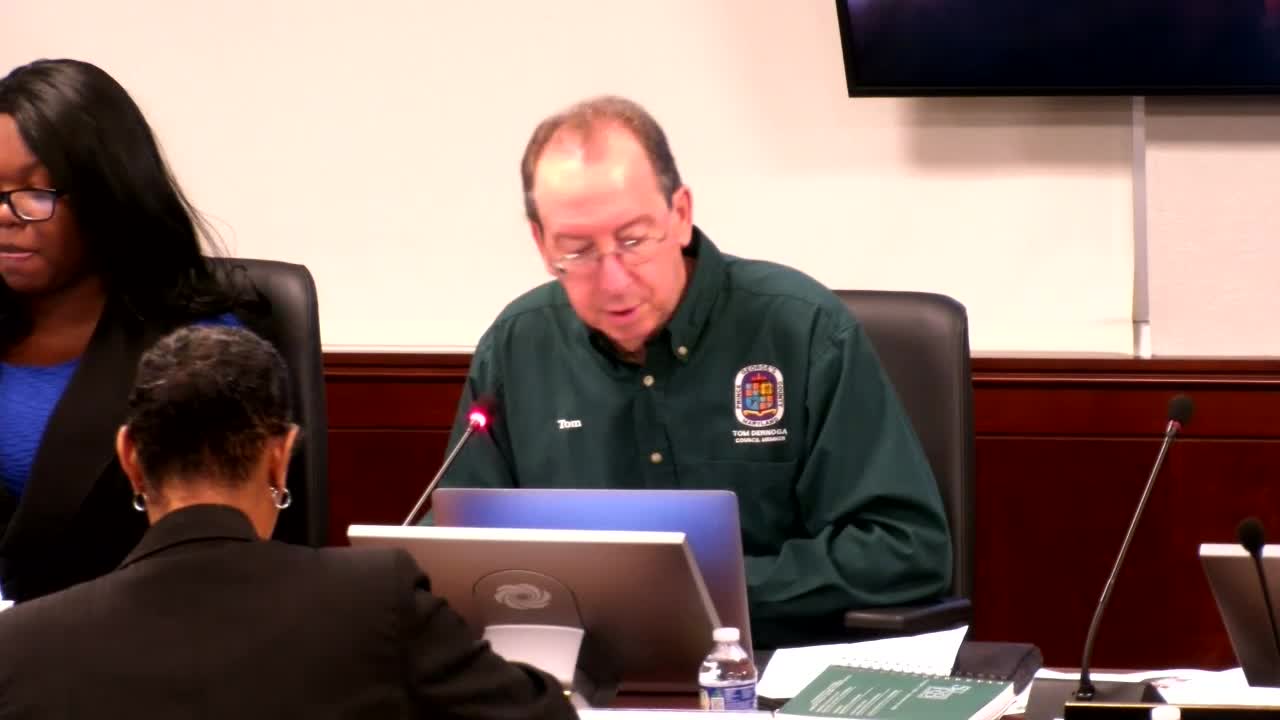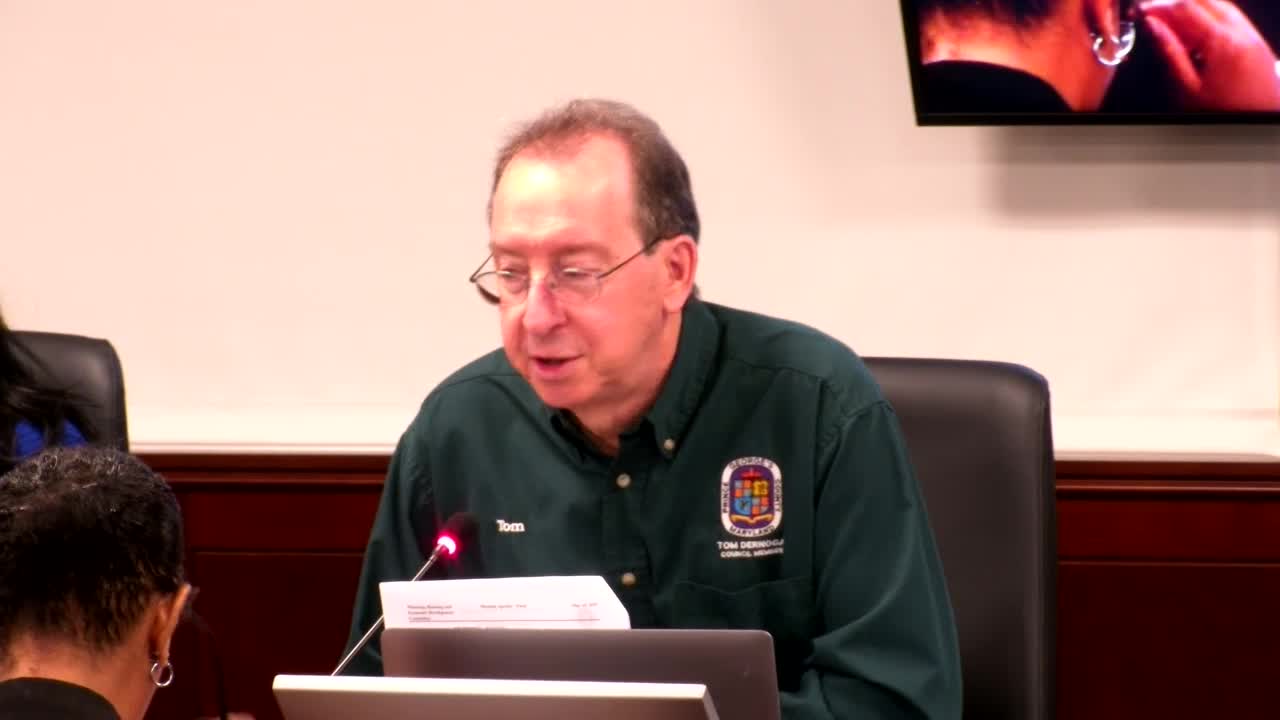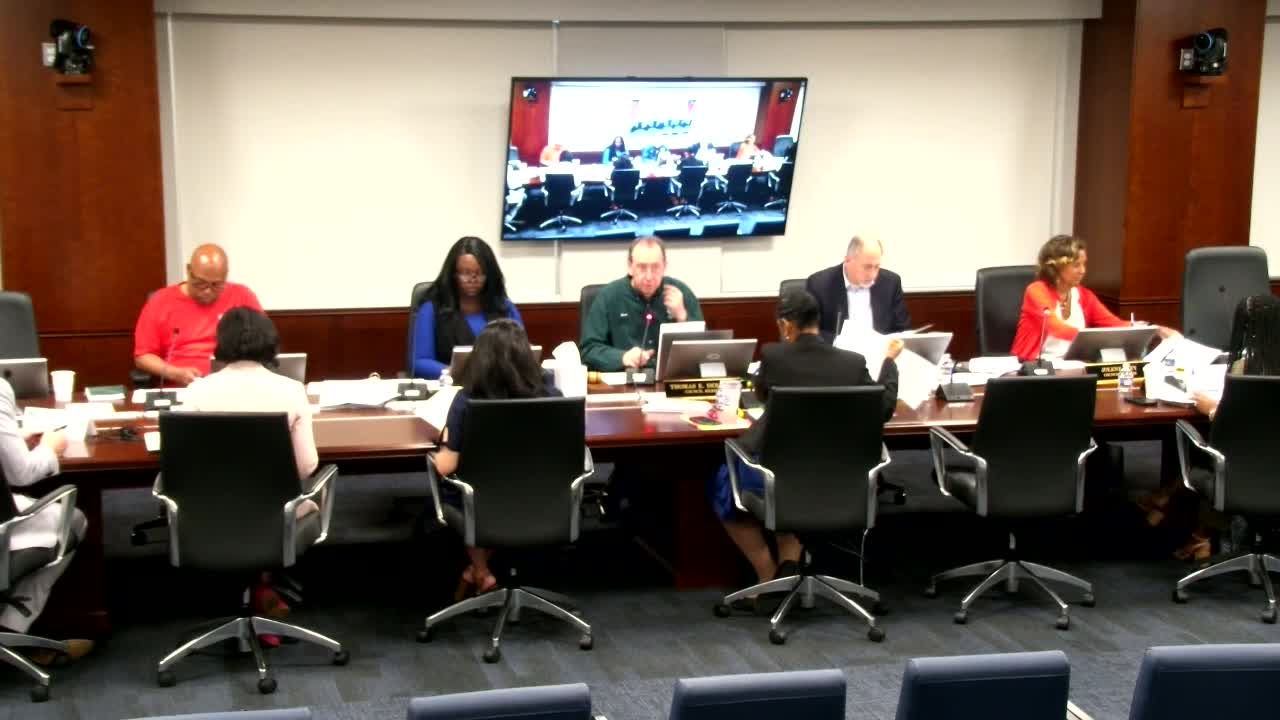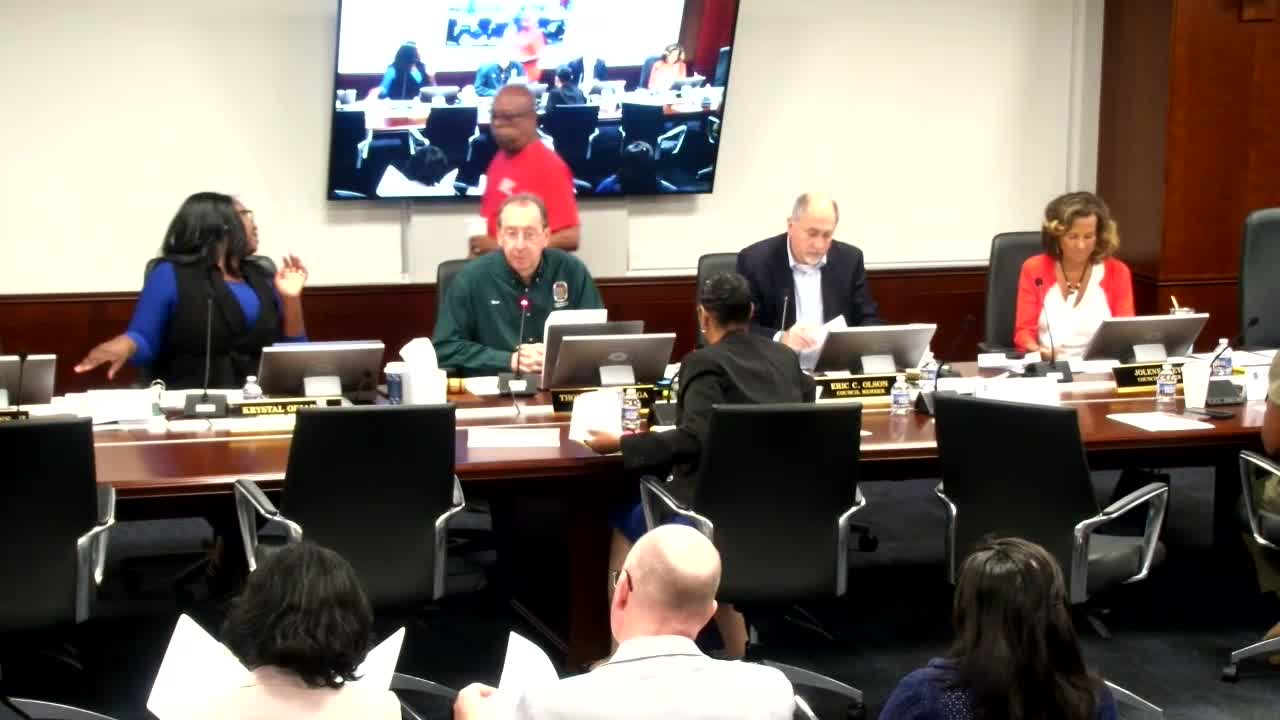Article not found
This article is no longer available. But don't worry—we've gathered other articles that discuss the same topic.

Committee backs bill to let County Council join rulemaking for common ownership communities

Prince George's County Farm Bureau briefs committee on programs, land access and meat-processing needs

Committee clears technical fix to historic preservation code

